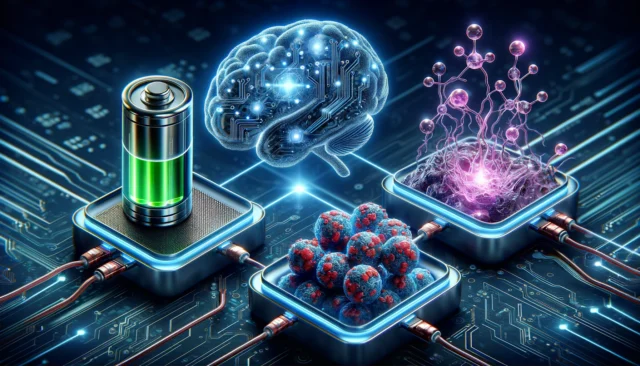AI has been used to produce everything from images, movies, as well as chatbots. Now a former Google DeepMind engineer is said to be utilizing GenAI to create actual physical materials.
Orbital Materials uses new technologies and LLMs to develop novel green materials for clean water, air, and energy. Founded by Jonathan Godwin, he wrote in a blog post in 2023 that “dramatic innovation” was needed in the field of Material Sciences. He continued, “the global market for aviation fuel is projected to be ~$650bn in 2030, and we need a sustainable and, crucially, affordable alternative.”
He called the progress in AI for materials “breathtaking,” stating that the organization aims to take the principles from models like AlphaFold, ChatGPT, and Stable Diffusion and adapt them to their uses.
As a result, the company is said to have developed a foundational model for atoms that can generate materials for applications it has never seen before. Its first target is producing materials relating to carbon capture, sustainable aviation fuel and the removal of harmful chemicals from the environment.
However, according to Dezeen, long-term plans include working on materials for architecture and design, such as lightweight alloys for cars and smart concrete.
Orbital Materials’ AI model
Speaking to TechCrunch, Godwin said, “Technical decision-makers at chemistry and materials companies struggle to develop new products because traditional methods of discovering new advanced materials are too slow and expensive to meet this demand.
“[Yet] demand for new advanced materials … is growing hugely as our economies become electrified and de-carbonized,” he added.
While there have already been projects related to materials research and development, Godwin claims that its proprietary AI model for materials science distinguishes it from others. The model, named Linus, is reportedly inspired by large language models and AlphaFold.
Godwin stated, “In these models, the really important thing is to get lots of different types of data: models like ChatGPT are trained on code, news articles, scientific text and encyclopedias. This diversity is one of the things that gives the models their remarkable capabilities.”
According to Godwin, Linus underwent training on an extensive dataset encompassing simulations and materials, spanning from batteries and semiconductors to catalysts and organic molecules.
The London-based startup has reportedly generated a cheap, more reliable filter for capturing carbon dioxide from the air, with more details expected to be announced later this year. In 2023, Orbital Materials raised a $4.8M seed round from Fly Ventures, Compound, Flying Fish Partners, Character, and Mustard Seed Maze.
Featured image: DALL·E








